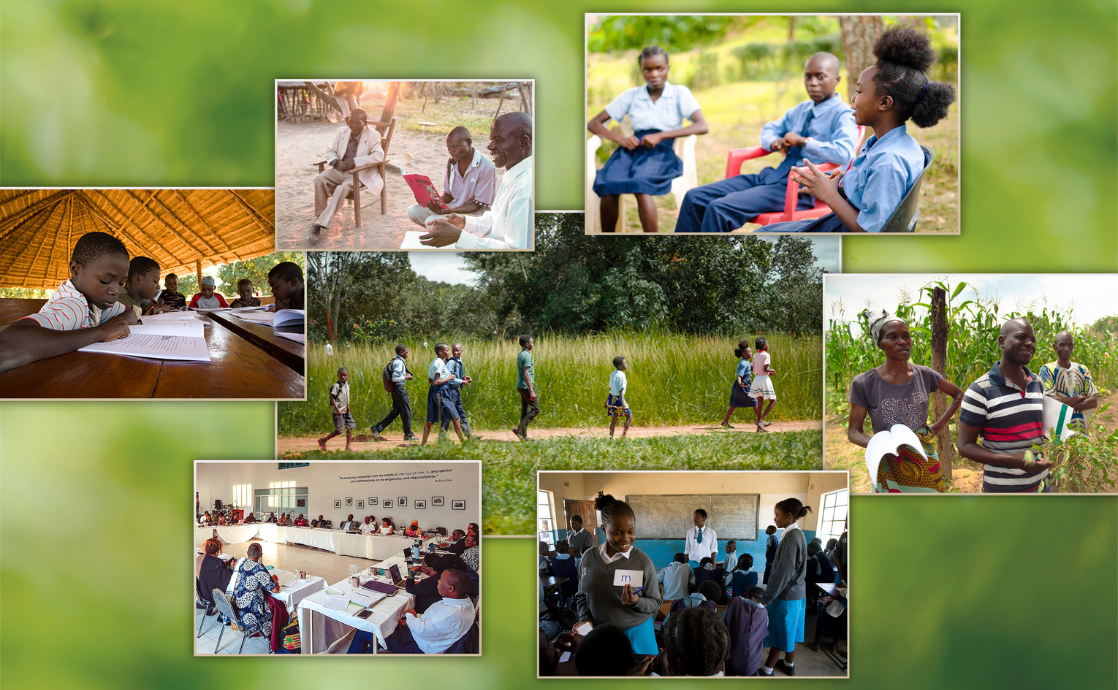The educational landscape in Zambia, much like in other developing nations, is often characterized by a juxtaposition of opportunity and challenge. Central to the quest for educational advancement is the Bahá’í teachings, which inherently advocate for the holistic development of individuals and communities. The Bahá’í approach to education posits that learning transcends mere acquisition of knowledge; it is intrinsically related to character development, social responsibility, and spiritual growth. Within the context of Zambia, this perspective yields profound implications for charting the future of the educational journey.
At the heart of the Bahá’í teaching is the principle of unity, emphasizing that humanity is but one family. This tenet has significant resonance in Zambia, a nation marked by diverse ethnic groups and cultural backgrounds. The Bahá’í community’s approach to fostering unity through education promotes an environment where students engage with one another beyond superficial differences. This educational philosophy aligns with Zambia’s national goal of inclusivity, aiming to cultivate a cohesive social fabric where every individual’s potentials are harnessed toward collective progress.
The fabric of educational transformation in Zambia can be perpetuated through the incorporation of Bahá’í principles into curriculum design. A seamless educational experience imbued with Bahá’í teachings encourages experiential learning and critical thinking. For instance, instead of rote memorization, students are urged to engage deeply with the material, discuss diverse perspectives, and develop their own insights. This method not only enhances intellectual growth but also fosters an environment where moral reasoning becomes paramount. A notable characteristic of this pedagogical approach is the integration of service-oriented projects, wherein students collaborate to address community challenges rooted in local realities.
Moreover, the concept of service is intricately linked with the idea of education. The Bahá’í community in Zambia posits that true education cannot exist in isolation from social input. The role of educators extends well beyond the classroom; they are seen as facilitators who guide students in applying their learning to improve their communities. This transformational process promotes a seamless experience where individual aspirations are intertwined with collective societal needs. When students see education not merely as a personal endeavor but as a means to serve humanity, it elevates the educational journey into a more profound, purpose-driven experience.
The incorporation of spiritual values into education arguably differentiates the Bahá’í outlook from conventional educational models. In many African cultures, including Zambia’s, spirituality plays an integral role in shaping the worldview of individuals. The Bahá’í teachings advocate for an educational framework that intertwines intellectual growth with spiritual understanding. This synthesis not only reinforces ethical considerations but also promotes civic engagement, an essential component of national development. Students can navigate complexities much more effectively when they appreciate a broader spiritual context in which their actions unfold.
Critical to realizing this vision is the role of educators. The responsibilities of teachers transcend traditional educational roles, requiring them to embody and exemplify the values they wish to instill in their students. In Zambia, where the educational system grapples with challenges such as high student-to-teacher ratios and limited resources, the Bahá’í model emphasizes teacher training and the empowerment of educators. There is an intrinsic emphasis on continuous professional development, ensuring educators are equipped not only with knowledge but also with the pedagogical skills necessary to foster a learning environment steeped in compassion and integrity.
The Bahá’í community in Zambia also recognizes the significance of collaboration with governmental and non-governmental organizations to address educational inequities. Aligned with their mission of promoting the well-being of humanity, the community engages in partnerships aimed at enhancing educational access and quality. Such collaborative initiatives are essential for implementing innovative educational practices that can adapt to the dynamic socio-economic landscape of Zambia. This synergy fosters a platform where sustainable development goals can be met, resulting in a more resilient educational framework capable of serving all segments of society.
The challenge of addressing educational inequality in Zambia is exacerbated by geographical disparities. Rural areas frequently lack access to quality education, leading to exacerbated socio-economic divides. Through localized Bahá’í initiatives, there exist concerted efforts to extend educational resources and methodologies to these underserved regions. This outreach is not simply an act of charity but a comprehensive strategy designed to empower communities through education. By promoting community-driven education initiatives, the Bahá’í principles help cultivate local capacity, ensuring that solutions are sustainable and contextually relevant.
In conclusion, the integration of Bahá’í teachings into Zambia’s educational journey offers a transformative paradigm that not only addresses conventional educational challenges but enriches the experience by fostering a seamless connection between personal growth and societal progress. The path forward is characterized by unity, service, and spiritual growth, creating a holistic educational framework capable of adapting to the diverse needs of Zambian society. As this approach gains traction, the future of education in Zambia will likely reflect a more inclusive, equitable, and morally driven character, profoundly impacting both individuals and the broader community. Ultimately, the Bahá’í teachings provide a compass for navigating the complexities of education in the contemporary world, reaffirming the notion that through collective efforts and a shared vision, a brighter future is indeed attainable.
